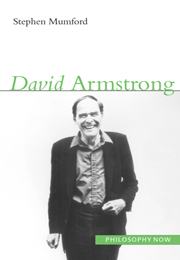3 - Laws of nature
Summary
The world is remarkably orderly and predictable. We know that water will boil at 100°C, that the sun will rise every morning, food will nourish us, and that we will be attracted to the ground. If we understand the order of the world, then we will be able to harness it and manipulate it to our own ends.
Before the scientific revolution, such order in the universe was often put down to providence, and it is perhaps from this thought that the original idea of a law of nature originated (see Ruby 1986). Nature seemed so regular and so intricate that it might be compared to a large, accurate clock. God, the creator of all nature, need not keep constantly intervening, winding up his creation to keep it going. God is perfect, so his creation would also be perfect. When creating the universe he might have determined that there be laws of nature that dictate or govern how nature behaves. The order and predictability of the world is good prima facie evidence that it is so governed. Such laws imposed necessity on the world: necessary connections between one kind of thing and another.
Armstrong aligns with a naturalism in which there is no supernatural realm that God may inhabit. The theological explanation of nature is no longer available, therefore. Nevertheless, the notion of a law of nature has not been left behind, with scientists and philosophers looking for a down-to-earth account of laws.
- Type
- Chapter
- Information
- David Armstrong , pp. 41 - 60Publisher: Acumen PublishingPrint publication year: 2007



